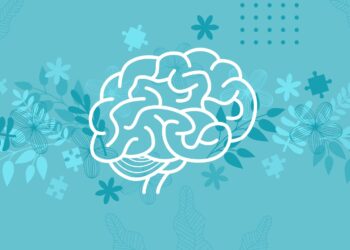In a world where juggling work, life, and the occasional existential crisis can feel like a circus act, the question arises: does short-term disability cover mental health? It’s a topic that deserves a spotlight, especially for those who’ve ever felt like their brain is throwing a tantrum while their body is still clocking in for duty.
Mental health issues are no joke, yet many still wonder if their short-term disability benefits will step in as the safety net they need. After all, a good mental health day can be as crucial as a physical one, but navigating the fine print can feel like deciphering a foreign language. Let’s dive into the nitty-gritty and uncover whether those mental health struggles qualify for a much-needed break.
Does Short Term Disability Cover Mental Health
Short-term disability provides temporary benefits for individuals unable to work due to medical conditions. This encompasses both physical and mental health issues, which can often confuse those seeking assistance.
Definition of Short Term Disability
Short-term disability refers to a type of insurance benefit that delivers partial income replacement for a specified period, typically up to six months. Coverage usually applies to employees unable to perform their job duties due to illnesses or injuries. Many employer-sponsored plans and private policies offer this benefit. Understanding what qualifies for such benefits is essential, notably for mental health conditions.
Common Eligibility Criteria
Eligibility for short-term disability generally relies on specific criteria set by insurance policies. Most policies require a medical diagnosis from a licensed provider supporting the need for time off. Employees often need to demonstrate that their condition significantly impairs their ability to work. Additional factors can include the length of employment and adherence to the employer’s policy guidelines. Each insurer outlines distinct requirements, so reviewing the policy details is crucial for precise information.
Mental Health and Short Term Disability

Mental health conditions can qualify for short-term disability benefits. Many individuals experience significant impairments that impact their ability to work.
Conditions Typically Covered
Anxiety disorders often lead to debilitating effects that can hinder job performance. Major depressive disorders frequently require a medical diagnosis for coverage eligibility. Post-traumatic stress disorder also falls under this category, affecting individuals who have experienced trauma. Bipolar disorder presents another example, as it can disrupt daily functioning. Each condition necessitates documentation from a healthcare provider that verifies the impairment’s severity.
Exclusions to Consider
Not every mental health issue qualifies for coverage. Pre-existing conditions might not receive benefits if diagnosed prior to policy activation. Self-inflicted injuries typically result in denial of claims as insurers exclude such scenarios. Additionally, conditions that do not impair job performance significantly may also face exclusion. Substance abuse issues often lead to complications in claims processing, impacting overall eligibility. Understanding specific policy details ensures individuals are aware of potential exclusions before initiating claims.
Filing a Claim for Mental Health
Filing a claim for short-term disability benefits related to mental health involves specific documentation and adherence to a defined process.
Documentation Needed
For a successful claim, individuals must provide essential documentation. A diagnosis from a licensed mental health professional is required, clearly indicating the nature of the condition. Medical records must demonstrate the severity of the impairment and how it affects the ability to work. Treatment history, including therapy sessions and prescribed medications, strengthens the claim. In addition, a personal statement outlining how the mental health condition impacts daily functioning and job performance proves beneficial. Gathering all relevant documents beforehand simplifies the submission process and speeds up evaluation.
Process of Filing a Claim
Initiating the claim process involves several key steps. First, individuals should contact their insurance provider to understand specific requirements and guidelines for mental health claims. Completing the necessary claim forms accurately is crucial, as errors may delay processing. Submitting the required documentation alongside the claim forms is next. Following an initial submission, it’s important to monitor the claim status. Maintain communication with the insurance provider to provide any additional information they may request. Timely responses facilitate a smoother review and approval process.
Frequently Asked Concerns
Short-term disability benefits offer important support for individuals facing mental health challenges. People often have specific questions regarding the coverage of such conditions.
Duration of Coverage
Coverage for short-term disability typically lasts from a few weeks to six months. The exact duration often depends on the individual’s specific policy and the severity of the mental health condition. Insurers assess the need for continued benefits through regular medical documentation from healthcare providers. Policies might include waiting periods that must be observed before benefits begin. Always check policy specifics, as some insurers offer extensions or limitations on coverage duration based on individual circumstances.
Impact on Future Employment
Experiencing a mental health condition can influence future job opportunities. Employers are required to handle disclosures regarding short-term disability sensitively, maintaining confidentiality about an individual’s health status. Past claims should not legally deter an applicant’s prospects for future employment. However, the stigma surrounding mental health issues may affect perceptions. Individuals may want to prepare for questions about gaps in employment by explaining their journey towards recovery and the steps taken during their leave. Being honest about experiences can foster a supportive dialogue with potential employers.
Conclusion
Navigating short-term disability benefits for mental health can be challenging but understanding the coverage is vital for those in need. Mental health conditions can indeed qualify for benefits, provided they significantly impair one’s ability to work.
It’s essential to gather the necessary documentation and communicate effectively with insurance providers to ensure a smooth claims process. By being informed and prepared individuals can access the support they deserve during difficult times. Mental health matters just as much as physical health and knowing how to advocate for oneself is a crucial step towards recovery.













Discussion about this post